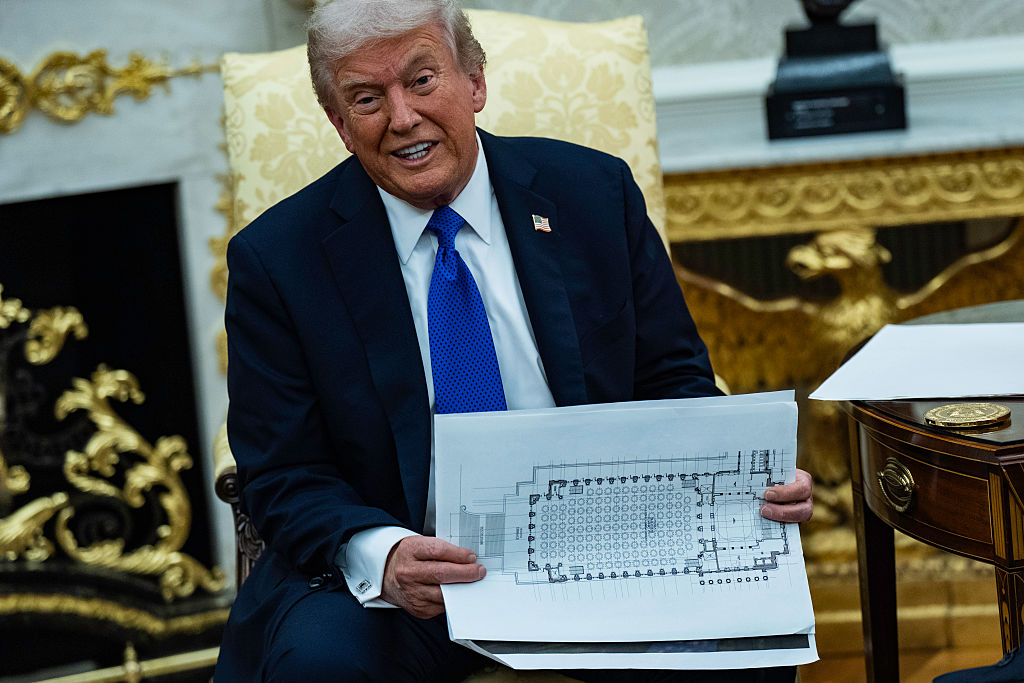Black Caregivers: Fight For Democracy Is About Health, Community
For Black Caregivers, The Fight For Democracy Is About Health And Community

Another weekend of mass actions in the books, but the momentum behind the second No Kings Day continues through cross-issue organizing and everyday workers lifting up their voices and taking action. With the increasing concern over rising health care costs and cuts to necessary programs, SEIU member home care workers like Athena Jones and Phyllis Pride see an opportunity beyond one-off days of action.
Speaking with NewsOne, Jones called the issues affecting home care workers central to the provision of care itself and impact many families and communities who could lose access to care, food, and dignity. As an example, she pointed to a proposed federal rule that would allow people to be reclassified as “companions” so they could be paid lower wages, in some cases, less than $7.25 an hour.
“The fight for democracy lives in our hands, the same hands that bathe, clean, feed, and care for those who cannot care for themselves or who choose to live at home with dignity,” Jones said. “As home care providers, we do the work that keeps this country standing, yet our labor is often invisible. No one should survive on less than a living wage.”
Jones said that while she did not participate in a local gathering, she carried the spirit of the day of action with her as she knocked on doors for Abigail Spanberger, a candidate for Virginia governor. She said that people cannot sit by and allow self-proclaimed kings to take power without repercussions.
“Protecting workers, preventing authoritarian overreach, and demanding rights for all are achieved through collective bargaining for home care providers and all workers,” Jones said. “Every knock I make, every conversation I have, is a stand against unchecked power. Care work is political, and each vote is a declaration that compassion, labor, and community matter more than kings or rulers who refuse to listen.”
A Homecare Chapter Chair with SEIU Virginia 512, Jones reflected on the historical importance of Black labor organizing, calling it “political and transformative.”
“Labor organizing has always been a critical tool for Black communities to claim dignity, voice, and power. Historically, unions were not just about wages,” she said. “They were about who gets heard, who gets to vote, and who gets to live with dignity.”
According to Jones, care work becomes political action through deep organizing and advocacy. Given the central nature of care to our economy and communities, it is a major aspect of having a representative democracy.
“Organizing care workers ensures protections, fair wages, and the political voice that safeguards communities,” she said. “Democracy is impossible if those who sustain it cannot live with dignity.”
Michigan home health worker Phyllis Pride echoed similar sentiments about the innate nature of political advocacy in care work.
“Healthcare workers —especially home care workers — are advocates through and through,” she said. “We not only fight for the rights of other caregivers, but for the people we care for, too.”
Pride said that much of the work of home care workers involves the right to life, liberty, and the pursuit of happiness. The very tenets of democracy are built into their charge. Organizing with Michigan Home Care Workers United and SEIU has helped Pride expand her advocacy and elevate her voice further.
“I’ve spoken to elected leaders at the federal and state levels on behalf of all Michigan caregivers and the people we care for to show just how important long-term care is in our communities,” she said. “Caregivers have to speak up every chance we get. If we don’t, who will?”
She also pointed to the necessity for collective action and building power, citing as a recent source of inspiration the over 32,000 Michigan home care workers who voted to unionize, joining the SEIU ranks. Nationally, home health workers are overwhelmingly Black and other women of color and often have low wages and no benefits.
Under the leadership of President April Verrett, SEIU has positioned itself as a visible leader within the national coalition fighting at the intersection of democracy and economic justice. With the need for home health caregivers expected to grow within the next 10 years, cuts to funding programs, including Medicaid and Medicare, could impact the services offered to those in need. The cuts enacted earlier this summer through the Trump administration’s OBBBA legislation are estimated to have disastrous impacts on those relying on care and the providers who serve them.
Jones and Pride share that these issues aren’t simply policy issues or a matter of politics, but directly impact racial and economic justice. Whether they are fighting for better wages and conditions for home health care workers or advocating for funding and resources for long-term care, Jones and Pride see the current moment as requiring a transformation of systems to respect workers, families, and communities.
“We honor this work by advancing democracy, not crowning kings, and by demanding a system that respects our labor,” Jones said. “I am inspired by thousands of care workers who organize, fight for a living wage, share their stories, and speak truth to power. Together, we transform individual care into collective strength.”
SEE ALSO:
Chicago Mayor Evokes Black History In ‘General Strike’ Call At No Kings 2.0








